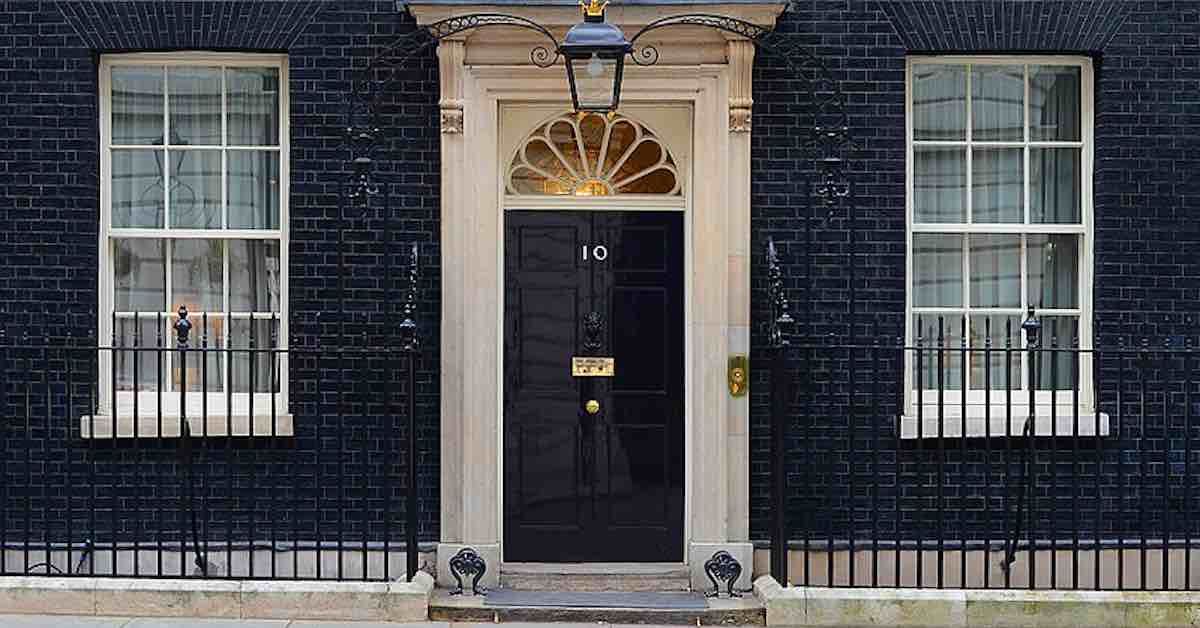Concerns over planning, Green Belt development, sustainability and housing targets all came to the fore when we asked our Editorial Board their thoughts ahead of the General Election.
Some of our experts also expressed fears over what will happen to the Renters Reform Bill as a result of Rishi Sunak calling a snap election on July 4. There were also concerns over affordability for prospective house buyers.
This follows the General Election wishlist from Pye Homes earlier this month.
In a joint response to our request for comments, Boyes Turner partner Brian Dowling and legal director Derek Ching, both in the firm’s development and house building team, said: “Clients had previously asked us about including ‘Corbyn clauses’, but no one is asking us for ‘Starmer clauses’.
“It seems that everyone is expecting Labour to win and that the property industry is comfortable with the impact of a Labour Government. If that happens there will potentially be some significant changes, with the detail only emerging if and when that happens. In particular:
- Housing and planning. Labour plan to allow ‘grey belt’ development (with a high level of affordable housing) and intends to enforce housing targets and Local Plans, potentially increasing housing supply. They also aim to create new towns, though success will depend on engaging landowners and communities effectively. They will be easier to bring forward if landowners are incentivised to provide the land.
- Business rates and high street. Reforming business rates could alleviate financial pressures on high street retailers, potentially revitalising these areas and boosting local property markets.
- Leasehold and Commonhold Reforms. Labour still publicly intend to abolish residential leasehold and reform commonhold. That is harder than it sounds and could impact a lot on existing and new stock. We are closely watching the Government’s leasehold bill to see if it gets in before Parliament is dismissed.
- We may see a resurgence in council house building, which could involve strengthened compulsory purchase powers. While an increase in social housing supply aims to address the affordable housing issues it may impact buy-to-let landlords with a reduction in the demand in the private rental market and potential rent controls. This could hit hardest those landlords who invested at market peaks.
“In summary, Labour’s policies indicate more regulation and perhaps more challenges for the industry, but could also result in welcome reform to planning and more funding for socially-focussed development.”
Philip Campbell, commercial director – MEPC Milton Park, said: “Whichever party (or parties) form the next Government, we hope politicians will seize upon the power of building effective partnerships between the public, private and third sectors to turbocharge investment into the UK economy.
“Adopting a more collaborative approach between developers and local authorities, like we’ve seen through the Milton Park Local Development Order – a simplified 10-day planning tool, will give occupiers greater flexibility and agility to scale up and drive forward innovation.
“Finally, manifesto commitments aimed at giving greater freedoms for local authorities to raise and deploy their own capital will make innovation clusters like Oxfordshire a more attractive place to invest in, providing the opportunity to build a longer-term vision and certainty that investors are looking for.”
Charles Elsmore-Wickens, head of Savills residential office in Oxford, said: “Affordability is by far the biggest factor in the mainstream housing market. Accordingly, we expect the pace and scale of interest rate cuts to have a more significant impact on the market than the timing or outcome of the General Election, not least because of the short odds on a change in government.
“Headline inflation’s fall to 2.3 per cent in the year to April indicates two or three bank base rate cuts this year. That is likely to mean mortgage markets remain relatively stable in the short term, with the prospect of lower borrowing costs as the year progresses.
“And with a shorter than expected run-in to the General Election, there is more opportunity for buyer demand to gain traction over the Autumn, with most of the uncertainty behind us.
“At the top end of the housing market, our March client survey showed a degree of ambivalence towards the prospect of a General Election, with 79 per cent of respondents saying it had no impact whatsoever on their commitment to move over the next 12 months.
“While prime property buyers may well have to contend with higher levels of underlying taxation, VAT on private school fees and targeted measures for overseas buyers, there is a sense that wealthy domestic buyers know what they are in for.
“That means the prospect of a change in Government is priced into large parts of the prime market, especially as talk of more aggressive wealth taxes (think back to the ill-fated mansion tax proposals of the early 2010s) haven’t surfaced.
“The tax treatment of non-doms is the one potential source of disruption, suggesting a cautious summer market in prime Central London. It has the potential to cause increased short-term price sensitivity and act as a drag on any subsequent recovery, that feels long overdue.”
Caryn Beidas, partner – residential development for IBB Law LLP, said: “New policies are desperately needed to rejuvenate and drive forward the planning system and the housing market; I believe such policies will be central to the political parties’ election campaigning.
“The planning system needs to be reviewed and amended so the system can run more efficiently to enable planning agreements to be completed and planning permissions to be granted at a faster rate, thereby improving the production rate of new housing.
“New/extended initiatives are also required for first time buyers to ensure home ownership is achievable and to keep all levels of the housing ladder moving.
“It will be imperative for the new government to focus on the efficient production of sustainable, quality, genuinely affordable new housing developments to enable residential developers to provide much needed new homes for both buyers and the rental market.”
Philip Waddy, managing director of WWA Studios, set out 10 points for a new Government to tackle. He said:
- “We need strong, consistent leadership. Six planning and housing ministers in the past year is not good for economic growth.
- “Local authorities must be empowered to deliver housing themselves. Our best post war record was under a Labour Government in the 1960s – some 400,000 dwellings built per year and roughly 50:50 between public and private sectors. Today we’re averaging 200,000 completions per year, almost all via the private sector. We cannot expect the 300,000+ new dwelling target to be met by the private sector alone.
- “Toughen up on sustainability with zero carbon developments being the norm and infrastructure projects prioritising a green agenda.
- “Focus on developing the right skills to deliver – there is a shortage of skilled labour to deliver ambitious housing targets.
- “Bring back regional planning with mandatory housing targets. The ‘duty to co-operate’ is exacerbating the housing crisis because there is no ‘duty to agree’. Regional planning should be joined up to co-ordinate housing and infrastructure needs for a more sustainable and coordinated approach to development and wider economic prosperity.
- “Never mind the grey belt, we need to conduct a national Green Belt review, which feeds into wider regional planning. This should set the objectives of what the Green Belt is actually for in the 21stCentury with sustainable patterns of development reflected in all Local Plans.
- “Immediate scrapping of latest policy changes in the National Planning Policy Framework to increase housing land supply and delivery of new homes more quickly.
- “Increase resourcing for local planning authorities to reduce delays in planning applications, legal agreements and Local Plan preparation. Currently legal agreements for development can eclipse the lengthy timescales for planning, due to chronic lack of resource and endless format amendments to what should be crystalised in a standardised set of template agreements.
- “Make better use of digitalisation, AI and other techniques to speed up the system.
- “If widespread reform of planning cannot be contemplated (we nearly had it in the White Paper of 2020), then at the very least, simplify the system by taking out of planning anything that might reasonably be controlled via the Building Act, ie minimum space standards, energy targets, environmental requirements etc. The validation requirements for planning applications have become far too heavy, even for minor householder and outline planning applications. It’s holding back economic growth and adding huge cost and delay.”
Tom Fraser, head of office at Savills in Cambridge, said: “While a change in Government would be unlikely to materially change the macro-economic backdrop, current indications are that it would result in a change in the focus of housing delivery and planning, with Labour putting its ambition to deliver 1.5 million homes over the next five years high up its political agenda.
“While that has the potential to change the housing landscape over time, it is unlikely to have a significant impact on the market in the near term.
“From a policy perspective, perhaps the biggest impact of a July General Election is the prospect that the Renters Reform Bill (which currently sits at committee stage at the House of Lords) will struggle to be enacted before Parliament is dissolved.
“However, with both main parties advocating reform in this area, it remains a case of ‘when’, not ‘if’ we see the abolition of the Assured Shorthold Tenancy across England and Wales, the main issue being the manner in which new regulations are introduced and the balance between protecting landlord and tenant interests. In that respect, close attention is likely to be given to the potential impact on the availability of homes to rent in an already undersupplied market.”
Karen Jones, planning & environmental law partner for Blandy & Blandy, said: “Each party will publish its manifesto in due course and these will set out their full list of policy commitments, which we await with interest.
“Housing will be a significant battleground and I fear there will be many missed opportunities. A few matters I hope are addressed:
- “Strategic review of the Green Belt to release land to assist housing delivery. Releasing Green Belt has become a political pariah and this needs to change, not least because there are areas of Green Belt with no intrinsic value, and appropriate protections (such as National Landscape) are better placed elsewhere, where it is much more important to ensure protections are enhanced. Stop protecting Green Belt for its own sake.
- “Re-introduction of a level of regional and national planning to bring cohesion back to the planning system and deliver longer term strategic objectives; clarifying where projects should be delivered and updating our National Infrastructure Strategy and National Policy statements.
- “Strengthening and delivering Local Plans and giving them greater weight to ensure delivery and the robust resistance to inappropriate development. It has been a particularly disappointing feature of our system in recent years that allocated sites do not come forward. Allowing sites allocated in Local Plans to receive outline planning permission would fix this frustrating issue which undermines confidence in the planning system.
- “Sufficient funding for planning services to enable them to deliver the support the public and councillors need – with investment in the future of planning by encouraging young people into the profession. We cannot deliver without the right people in place.
- “Reform of Section 106 and the Community Infrastructure Levy making these tools fairer, more accessible for use and more dynamic in helping to deal with environmental protections and mitigation, so they offer certainty rather than act as vehicles for delay.”
Mat Oakley, head of UK and European commercial research at Savills, said: “The question always comes up as to whether a General Election heightens investor uncertainty.
“Our analysis of previous election cycles suggests that transactional activity is generally lower than normal in the three months prior to the election date, then recovers in the following six-month period; the timing of this election, earlier than many predicted, is probably good news for reducing uncertainty, although a change of Government may extend that until their first Budget.
“We therefore may now see a weaker Q3 and stronger Q4 than we were initially expecting, but there is little evidence that a UK General Election has ever had a measurable impact on commercial property pricing.”
Image: Sergeant Tom Robinson RLC/MOD, OGL v1.0OGL v1.0, via Wikimedia Commons
© Thames Tap (powered by ukpropertyforums.com).
Sign up to receive our weekly free journal, The Forum here.












